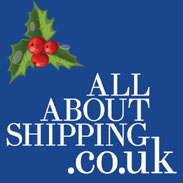
Koichi Muto
On the occasion of Mitsui O.S.K. Lines (MOL) 130th anniversary, we are pleased to bring you a message from our President, Koichi Muto.
STEER FOR 2020 – Toward Solid Growth
Today, I am pleased to join all of my MOL Group colleagues in celebrating the 130th anniversary of the MOL Group. Since 1884, when Osaka Shosen was founded, we have faced one trial after another: many vessels were lost through the world wars, Japanese ocean shipping companies were consolidated, the yen appreciated rapidly on many occasions, and we faced a multitude of world economic crises. Through it all, our group has overcome those hurdles thanks to the hard work, ingenuity, and creativity of our predecessors. The history of MOL is also the history of vessel innovation, from development of specialized ships such as tankers, car carriers, iron ore carriers, and containerships, to the next-generation vessel concept “Senpaku ISHIN.” We also have a proud tradition of safe operation, and continue striving to become the world leader in this area. And today the MOL Group begins the next chapter in its history.
Looking at the current climate surrounding the ocean shipping industry, global ocean trade has expanded in step with economic recovery, especially in advanced nations, and the imbalance between fleet supply and demand has shown a slight improvement. But the market has yet to see structural improvements, due to a continuing overcapacity of shipbuilding facilities. Against the backdrop of this business climate, we devoted considerable time to company-wide discussions, which led to the formulation of our midterm management plan: “STEER FOR 2020.” The plan reflects our commitment to take the helm and steer a course for long-term success. By the end of fiscal year 2019, ending in March 2020, we are seeking a departure from conventional-type profit targets on the assumption soaring market conditions. Instead, we will aim at high-quality, solid growth by offering added value to customers while unflinchingly meeting the challenge of providing high-level transport services. Today, I will talk about the ideal we are striving for and the course of action we will take in STEER FOR 2020, which we formulated to meet changing business climates and make innovative updates to past management policies.
(Innovation of business portfolio)
We will focus on shifting away from an earnings structure that is at the mercy of market trends, aiming at stable, long-term earnings by offering added value to customers through advanced services using our company’s core competence. Specifically, we will take full advantage of the tailwind of the shale revolution, and focus on our LNG carrier business, in which we can expect a rapid expansion in the next several years. In offshore business, which we expect to grow as a new business domain, we will increase our investment in projects where we can take full advantage of our expertise. Therefore, we will reallocate management resources on a company-wide basis, and make a bold and rapid shift in our business portfolio toward LNG carrier and offshore businesses.
(Innovation of business model)
We need to meet new business challenges every day while using our ingenuity and creativity, with no limits on our imagination. We will change the conventional model in which we try to anticipate market recoveries, control the impact of market changes, and instead aim to establish a structure where we can reap profits with certainty regardless of the market level. Because the market environment has a huge impact on business activity based on a long-term fixed fleet, we need to build a flexible fleet that has increased market tolerability. In addition, we will seek “market plus alpha profits” through efficient vessel allocation by optimally combining trades, while focusing on high value-added cargo transport, which requires specialized know-how. Another effort we can do regardless of the market climate is to thoroughly rationalize costs and secure our competitive advantages.
(Innovation of business domain)
We have accelerated globalization in various business sectors such as containerships, tankers, and dry bulkers to develop overseas operations. From now on, we will turn our eyes to expanding our business domain both upstream and downstream from ocean shipping transport. We have already made a strategic alliance with a powerful partner and developed the foundation to expand our container terminal business in the future. We will also exploit new business domains by expanding offshore business upstream from ocean transport of conventional energy resources such as crude oil and LNG.
We will proactively seek the management resources to capitalize on new business domains from outside the company as needed, aiming to expand businesses that will contribute to solid growth and become pillars of the MOL Group.
(Division strategies)
As I mentioned earlier, we are targeting expansion of the LNG carrier and offshore businesses with the goal of securing stable, long-term profits. However, to expand those businesses, we must further improve our high value-added services and advanced technological capabilities. Until now, the Technical Division, Marine Safety Division, and ship management companies have gotten involved in transport service projects after the business divisions win them. But as business becomes more advanced and more specialized, business divisions and other concerned divisions must be united as a team to work on obtaining projects from the very beginning. We will create valuable services and projects that other companies cannot replicate.
In the tanker business, we will reduce our market exposure and exercise our ingenuity in vessel allocation to steadily meet customers’ transport needs while assessing changes in the flow of cargo brought about by the shale revolution.
Turning to the dry bulker business, we will deepen relationships with Japanese customers and expand businesses in partnership with growing overseas customers to maintain and expand stable profits from Capesize vessels. In the mid- and small-scale bulker segment, we will focus on cargo fields where we can offer added value and shift to a fleet structure that has greater market tolerability. We will continue to maintain and expand coal carrier and wood chip carrier projects as the core of stable profits, and take a proactive stance in developing businesses in overseas markets as well.
In the car carrier segment, we will meet changes in transport needs due to customers’ localization of production, establish services that give us competitive advantages, boost the efficiency of vessel allocation, and expand cross trade business and inbound trade.
The containership segment is the key when it comes to achievement of our management goals. We will seek thorough cost rationalization to improve profitability while maintaining the investment needed to stay competitive, while making the most of strategic alliances. In addition, we will take a proactive stance in developing associated businesses such as terminal operations, which comprise container transport’s value chain, as a source of stable profits and as a tool for differentiating our services.
In the group business segment, we will maximize profits in existing businesses and take a proactive stance in growth fields such as ocean shipping-related businesses and new business domains to accumulate stable profits.
(Strengthen the management foundation)
It’s indispensable to strengthen our management foundation to realize these innovations and to ensure that we achieve the goals set out in our plan.
First, please deeply engrave “Compliance is the major premise of business” in your mind, and never forget it in your day-to-day activities. Speaking of safe operation, which is at the foundation of our company’s core competence, we will continue striving to achieve the goals of “Four Zeroes” – zero serious marine accidents; zero oil pollution; zero fatal accidents; and zero serious cargo damage – and the major indices such as the number of work-related accidents per hour for 1 million people and hours of vessel downtime. We will continually strengthen our safe operation structure to meet these critical objectives. In addition, we will enhance our financial standing, which supports our growth strategies, and develop thorough risk control to maintain a solid management foundation even in the face of unexpected and unpredictable developments.
Human resources are the ultimate key to realizing solid growth. Attracting, developing, and retaining top-notch personnel will be as essential as any business investment. Every investment in human resources will certainly show up in our business performance, so we will put our maximum focus on human resources development.
Today, we stand at the starting line toward the goals set forth in STEER FOR 2020. Let’s work closely with all our group colleagues to reach all of our targets. All of our group companies are united to work toward “innovation” and achieve solid growth. Then, let’s create a rock-solid MOL Group, which will be unshakable under any business climate.
On a final note, I want to talk once again about the importance of compliance. I regret to say that the Japan Fair Trade Commission announced the other day that it found our company in violation of the Japanese Antimonopoly Act regarding certain car carrier shipping trades. Up to this point, we have made various efforts to ensure compliance, but we can see that these efforts have not been sufficient. We must take this ruling very seriously, take a hard look at ourselves for this misconduct, make whatever changes are necessary in our compliance system, and do everything in our power to prevent the reoccurrence of such an incident. I call on every group colleague to remember that compliance, social norms, and behavior based on corporate ethics are the very foundation of corporate citizenship, and act accordingly every day.





